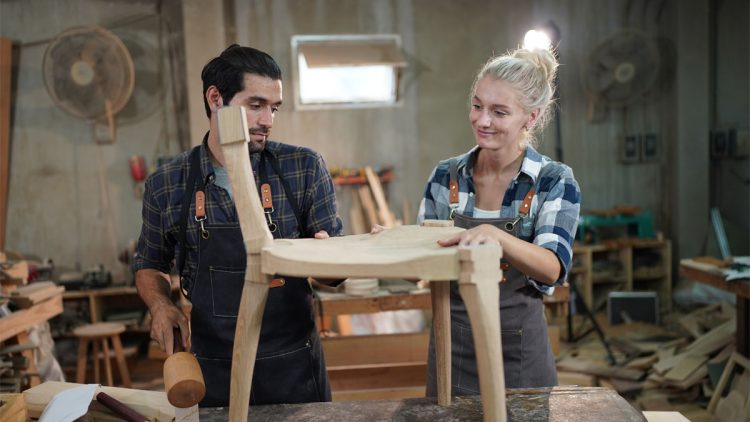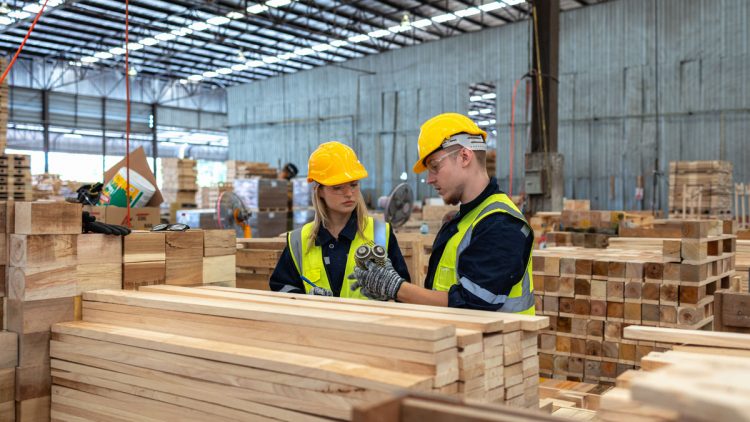Types of Softwoods
Softwoods are wood classifications that come from gymnosperm trees. These trees are classified by their thin, needle-shaped leaves and production of cones. A lot of types of softwood are used across the building and wood crafting sectors due to their high availability and affordability.
Among the many softwood kinds there exists a range of distinctive characteristics and specific applications for which they are better suited for. From weather-resistant cedar to lightweight and resilient pine, the types of softwood provide an abundance of options for making furniture, construction projects, and others.
Types of Softwoods
Softwood is valuable in many types of construction and woodworking projects. They are usually lighter in weight than their counterparts and typically have better dimensional consistently due to their even and straight grain. There are various kinds of softwood with unique qualities that are adaptable to certain uses and applications.
Pine
Pine is a kind of softwood that comes from the Pinus genus. Pines are evergreens and can be found around the world. This is a plentiful softwood variety and is used by craftspeople in several applications such as framing, joinery, flooring, cladding, furniture, and fencing. Typical types of pine are Ponderosa pine, Eastern white pine, and Scots pine.
Examples of Uses: Pine can be used to construct boxes, serving trays, and children’s toys.
Spruce
Spruce is a variety of the Picea genus. These are kinds of coniferous softwoods that grows in the Northern Hemisphere, mostly in North America and European countries. They have outstanding sound properties. Meaning that it helps encourage resonance in musical instruments.
Examples of Uses: Spruce can be used for construction lumber, crates, musical instruments and millwork.
Fir
Fir is a variety of softwood that comes from the Abies genus. Douglas fir is the most general type of fir on the market, however, there are a lot of other kinds, comprising of balsam fir and noble fir. Douglas fir is usually used as Christmas Trees.
Examples of Uses: Fir can be used to create chairs, trim work, cabinets, and baseboards.
Larch
Larch is a softwood coming from the Larix genus. This is a kind of deciduous conifer, meaning that whereas they have needle-shaped leaves, they lose those leaves in com autumn. Larch wood has natural oils making it more rot and wood pest infestation resistant.
Examples of Uses: Larch can be used to make tables, chairs, interior flooring, and paneling.
Redwood
Redwood is a softwood that comes from numerous species of the Sequoia genus. The capability of redwood to endure outdoor weather conditions due to its natural oils making it some of the most favorable wood for outdoor applications. Redwood also has first-rate natural thermal insulation aspects.
Examples of Uses: Posts, boxes, baseball bats, indoor furniture, and see saws.
Cypress
Cypress wood comes from multiple species in the Cupressaceae genus. People value cypress wood for its adaptability but also for its exceptional resin and oil content, which gives it water resistance qualities.
Examples of Uses: Railroad ties, doors, decking, barrels, and porch swings.
Softwoods Mesa by Timber Woodworking
Timber Wood Working offers softwoods in Mesa, Arizona. We specialize in woodworking tools, equipment, and supplies for commercial woodworking cabinet shops or furniture manufacturers as well as the home shop hobbyist. Contact us today, or call if you should have any questions.


